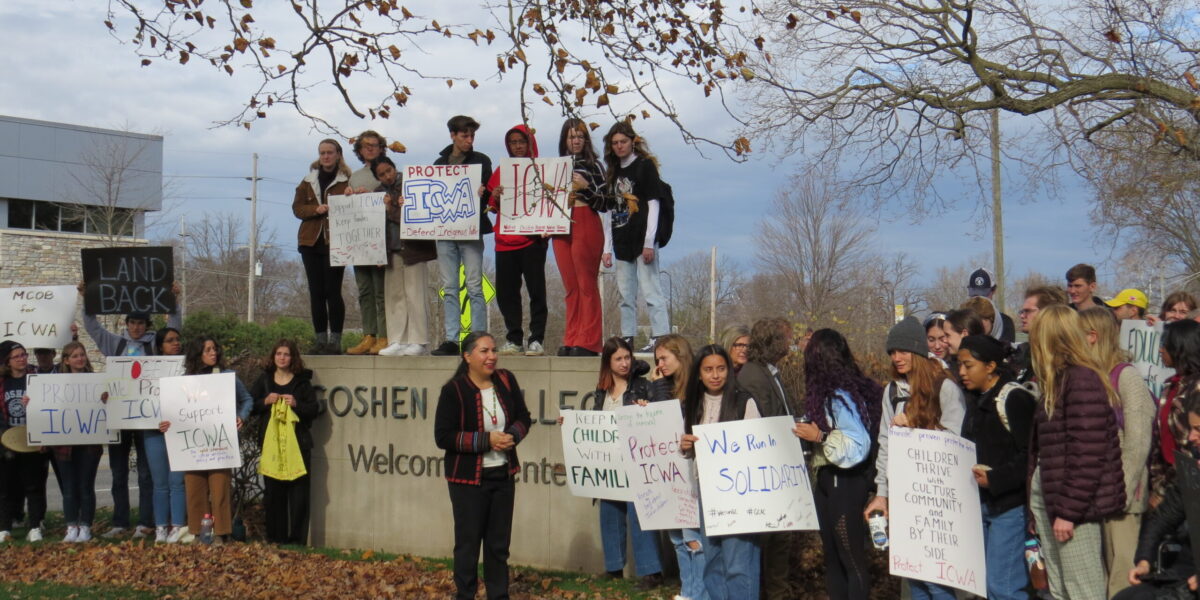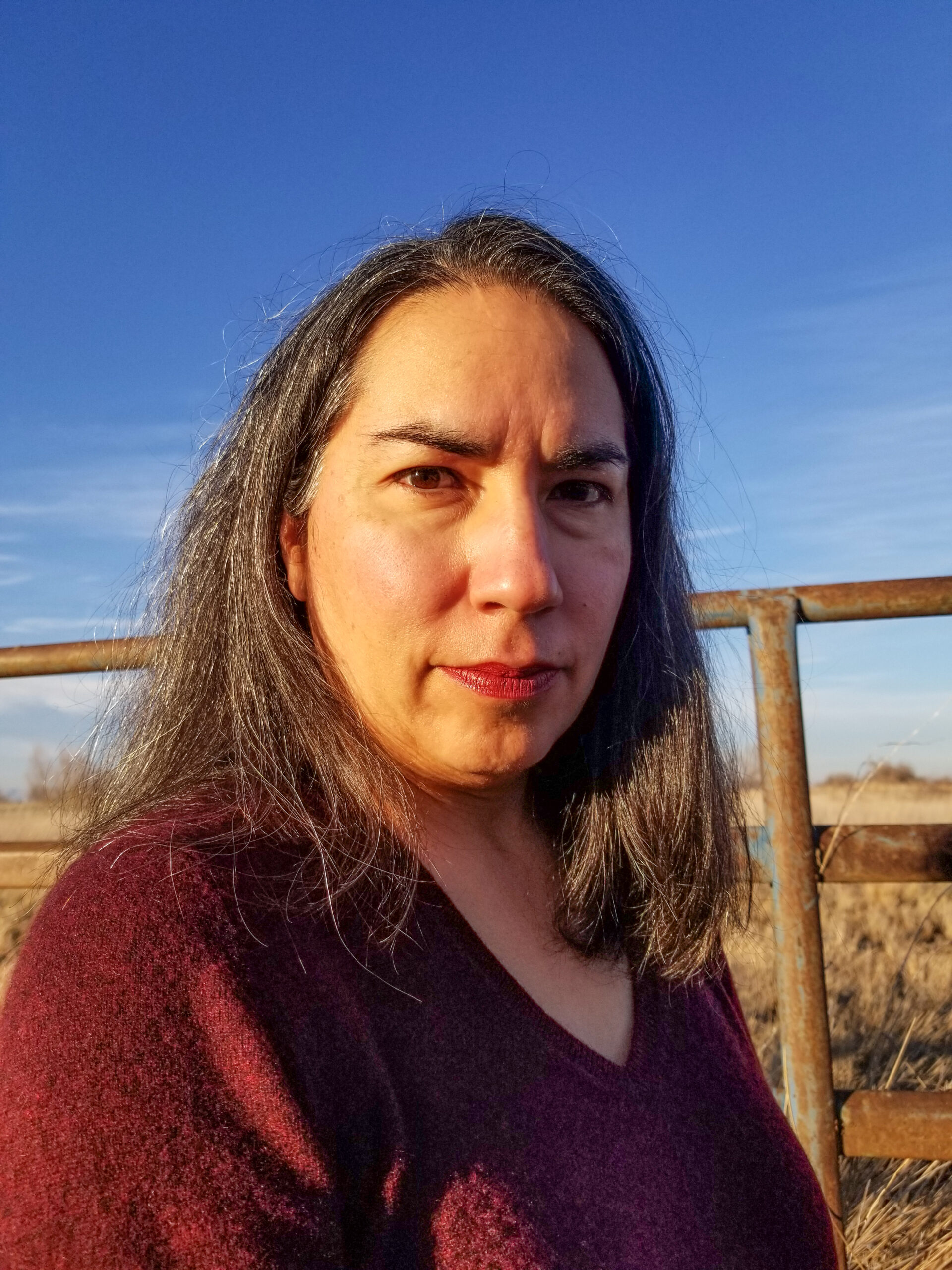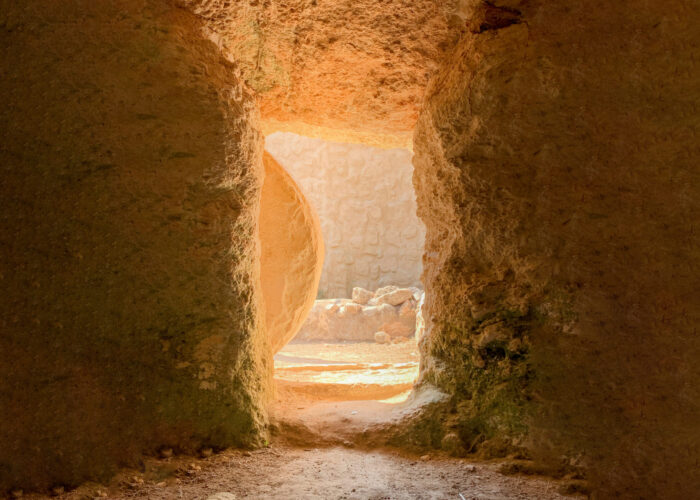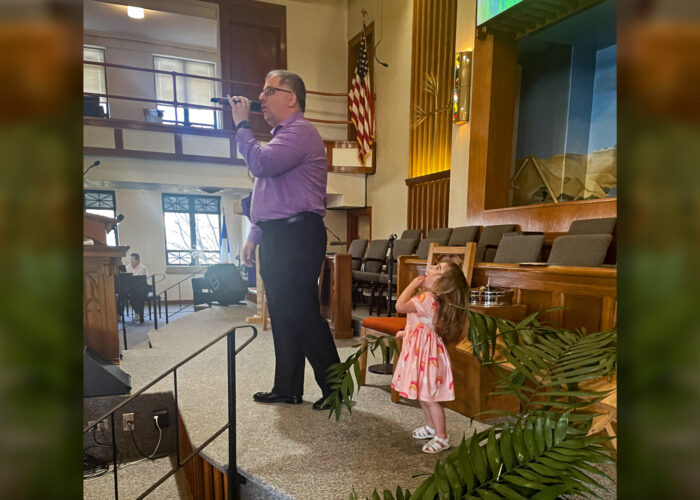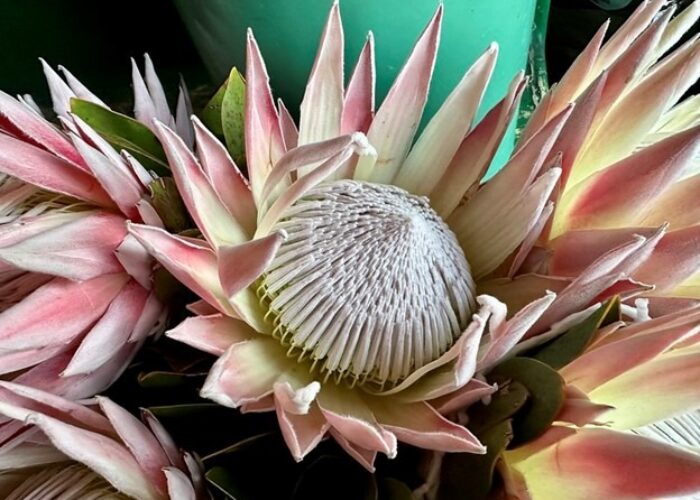Sarah Augustine, a Pueblo (Tewa) descendant and Mennonite Mission Network board member, requests that members of her Mennonite family reflect on the gulf that separates dominant culture’s celebration of Thanksgiving from the Indigenous practice of daily thanksgiving and caring for all the beings who share Earth.
From my public-school education, I learned that Thanksgiving is the day when our nation gives thanks for the bounty this country has provided us, as ordained by God. There is a national fable that describes Native Americans and early settlers sitting down together in friendship. However, this fable of collaboration does not represent my understanding of the interaction between the First Peoples of the land and the settlers. Our shared history does not contain meaningful right relations.
As an Indigenous woman, Thanksgiving is a reminder of loss.
The Doctrine of Discovery, grounded in Christian theology, identifies Europeans as the rightful heirs of the United States. In this narrative, God ordained and empowered European monarchs to vanquish Indigenous Peoples and to own all the wealth of the land, from sea to sea. If we are not careful about how we approach the Thanksgiving holiday, we risk implicitly giving thanks to God for making the way for settlers to take and own the entire nation. It becomes a Thanksgiving of triumph, for the triumphant, which reminds me of the sixth chapter of Deuteronomy, in which the children of Israel are empowered to take the land of Canaan.
I have trouble relating to Deuteronomy and the story of Israel that was brought out of Egypt. In my cosmology, as a woman indigenous to North America, I am one of them, invaded by the people presumed to be chosen by God.
I am from the people who:
- Built the cities of clay on the crest of mesas, which were seized by the Spanish.
- Lived in homes with good things in the river valley of what is now called the Rio Grande.
- Dug the wells in the desert that have been used and depleted by others for more than 500 years.
- Planted the fields of corn and tobacco, the vines of squash and beans. We were satisfied by these four sacred plants.
My lived narrative of the settlement of North America is one of genocide, not triumph.
In my Indigenous cosmology, giving thanks on one day does not make much sense. Regardless of whatever else is happening in my life, I and my relatives give thanks each morning at dawn, acknowledging that we are part of a life-web. The creation that surrounds us is not ours to own, or to take for granted. Each morning, I am thankful for the sun, which warms me and my family and enables the grass to grow, which, in turn, feeds our animals on our small ranch. I am thankful to be part of this amazing web of life. I am thankful to the pollinators, to the microbes in the soil, whose names I do not know, yet still acknowledge. Without these, our soils could not grow food.
I have been taught by elders that, in harvesting food, I am to take just what I need, and leave plenty for others. The consumerism of the Thanksgiving holiday does not promote a thankful spirit, but pushes those who yield to it, to never be satisfied with what they have but greedily grab as much as they can.
I believe the Thanksgiving holiday provides us with the opportunity to notice that a gulf remains between the worldview of Indigenous Peoples and the dominant culture. I ask that the Thanksgiving holiday be a time for reflection on these differences. How might we work to close that gulf? It is my wish that someday we can celebrate a coming together about which we can all be grateful.
The Dismantling the Doctrine of Discovery Coalition extends this invitation: Join us the day after Thanksgiving (1pm PST / 3pm CST / 4pm EST), for a Prayer and Action Hour that will weave prayerful singing with reflection on our recent time with family and integrating practices of truth-telling and lament for Indigenous families torn apart by forced removal of children, assimilation, and other forms of violence. Register here.

